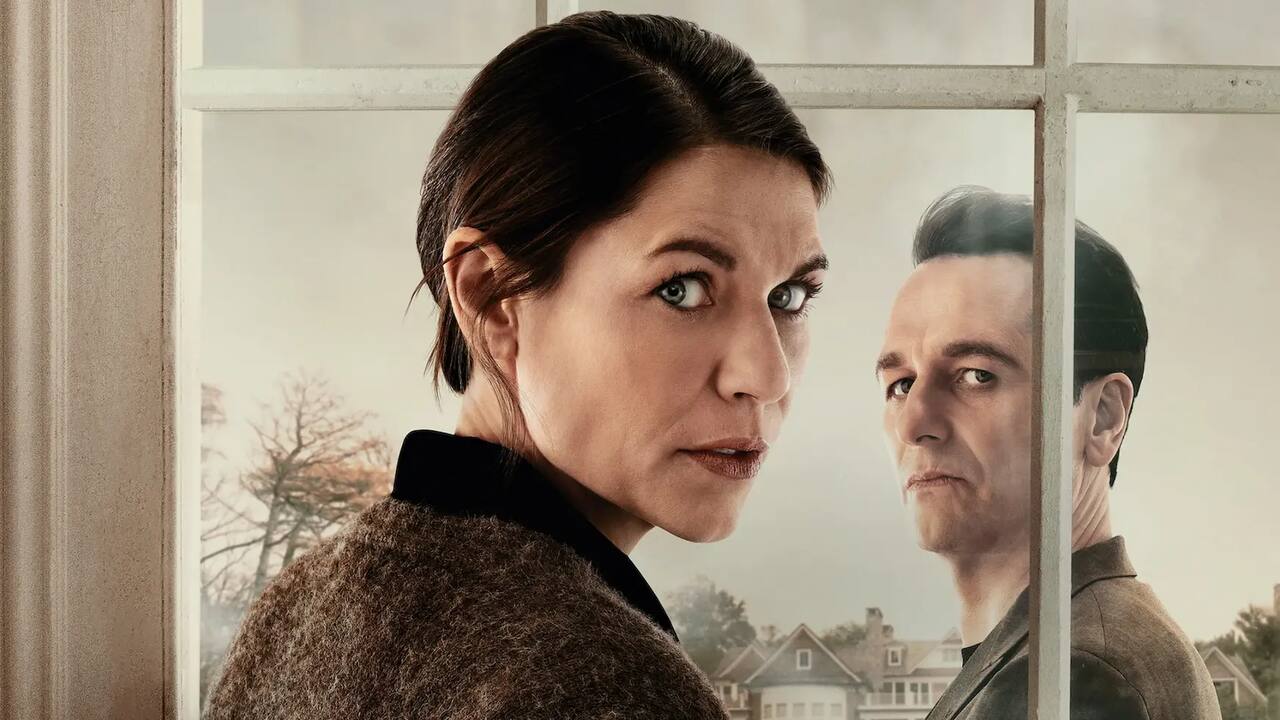
Watching The Beast in Me felt like stepping into a sleek, modern thriller where grief meets ambiguous power in the suburbs, an unglamorous backyard, yes, but one layered with menace. From the first episodes, the writers and direction commit to the idea that trauma doesn’t fade; it mutates. Aggie, played by Claire Danes, has withdrawn from the world after her son died, her creative spark gone; when Nile (Matthew Rhys) moves in next door, the combination of her internal collapse and his external mystery sets up the central cat-and-mouse dynamic. The writing gives Aggie enough agency—she’s no victim waiting to be rescued, but also enough vulnerability to make you root for her. Danes nails it: you can see the doubt in her eyes, the memory she fights, and the instinct to investigate that draws her into dangerous territory.
Matthew Rhys as Nile is equally strong. A character who might be charming, might be monstrous, or both—is a tricky turn to pull off, but he leans into the ambiguity with a calm menace. The script gives him quiet scenes that stretch you out: the gentle greeting to Aggie, the polite veneer, the flicker of something else behind it. In many episodes, he holds the frame, and the tension remains alive simply through what he doesn’t say. Their interactions—attempts at civil neighbourliness, early curiosity, and then something darker—are the show’s core, and this dynamic carries much of the drama. You believe both characters are drawn in for reasons they barely understand themselves.
Visually, the series is slick without being over-the-top. Cinematographer work and direction (credit to Antonio Campos, among others) keep things moody: interiors feel lived-in, suburban night scenes carry a cold weight, and the soundtrack underscores unease without resorting to jump scares. The eight-episode format moves steadily—there’s pacing here, and though you might guess certain beats, the show often plays the delay, holding back reveals rather than flooding them. I appreciated that restraint. Also, the supporting cast adds texture: the character of Nile’s missing-wife back-story, the suburban tensions around real-estate development, and the legal/press undercurrents give the world more scope than just “writer meets suspect”. These layers help the series feel richer than basic procedural fare.
One of the things that stands out is how the grief theme isn’t treated superficially. Aggie’s inability to write, her isolation, the way she watches life go past—these moments are given time. The show doesn’t just use her pain as a plot device; it shows it. That emotional thread keeps the thriller beats grounded. And when the investigation of Nile’s world, the development deals, the subtle hints of corruption, the missing-wife question—rises up, it feels like more than genre wallpaper. It becomes about power, perception, and the monstrous within ordinary facades. The title tracks: “the beast in me”, the beast in you. It invites reflection.
That said, the show has a few missteps. For one, while the leads are excellent, some of the secondary arcs don’t land fully. A city-council subplot around development opposition feels promising but occasionally gets sidelined or underexplored. Some characters pop in, make an impact, then recede without full growth. It’s a minor quirk given the strong core, but noticeable if you like your ensemble lean and fully developed. Also, in certain scenes, the thriller veneer thickens to the point of predictability: you see the “sudden discovery” coming the way it’s framed, or the music cues signal the “moment of truth” just a touch too early. A little more surprise would have sharpened the effect.
Another small criticism: while the cinematography is solid, there are instances where the show leans on visual metaphor a little hard—glimpsed reflections, ominous windows, repeated shots of empty rooms—that sometimes felt familiar from previous thrillers. I found myself wishing for a more unique visual signature. The script occasionally leans toward exposition when nuances might have sufficed—characters telling each other things we’ve already inferred rather than showing them. These are not major faults, but noticeable in an otherwise ambitious show.
Still, looking at the overall package, this is a quality venture. The writing, the acting, and the mood all align to create something compelling. The tension builds with intelligence; you care about what happens to Aggie, you’re uneasy around Nile, and you keep watching because you want to know how their dance ends. For a limited-series format, it uses its time well, and by the time you reach the end, you have enough resolution to feel satisfied while also pondering open questions about guilt, complicity, and secrets. The strength lies in the central relationship more than in any wild twist, and I think the show commits to that—less “what shocking reveal awaits”, more “what happens when two people, each damaged, meet and reflect each other’s darkness”.
In a landscape crowded with thrillers, The Beast in Me sets itself apart by refusing to be purely cynical or sensational. It wants character, it wants quiet dread, and it wants you to sit with the shadows. It hits those aims most of the time. Yes, there are times when you’ll predict a turn, when a supporting plot won’t feel fully fleshed out, or when the aesthetics borrow from the genre’s toolkit rather than redefine it. But if you enjoy psychological suspense that leans into emotion and ambiguity, this is one worth your attention. I found myself drawn in, invested, sometimes startled, and ultimately satisfied by how the story completed its arc. For anyone who likes their thrillers smart, moody, and anchored by strong performances, this one delivers more than enough.
Final Score- [7/10]
Reviewed by - Anjali Sharma
Follow @AnjaliS54769166 on Twitter
Publisher at Midgard Times
Get all latest content delivered to your email a few times a month.
Bringing Pop Culture News from Every Realm, Get All the Latest Movie, TV News, Reviews & Trailers
Got Any questions? Drop an email to [email protected]